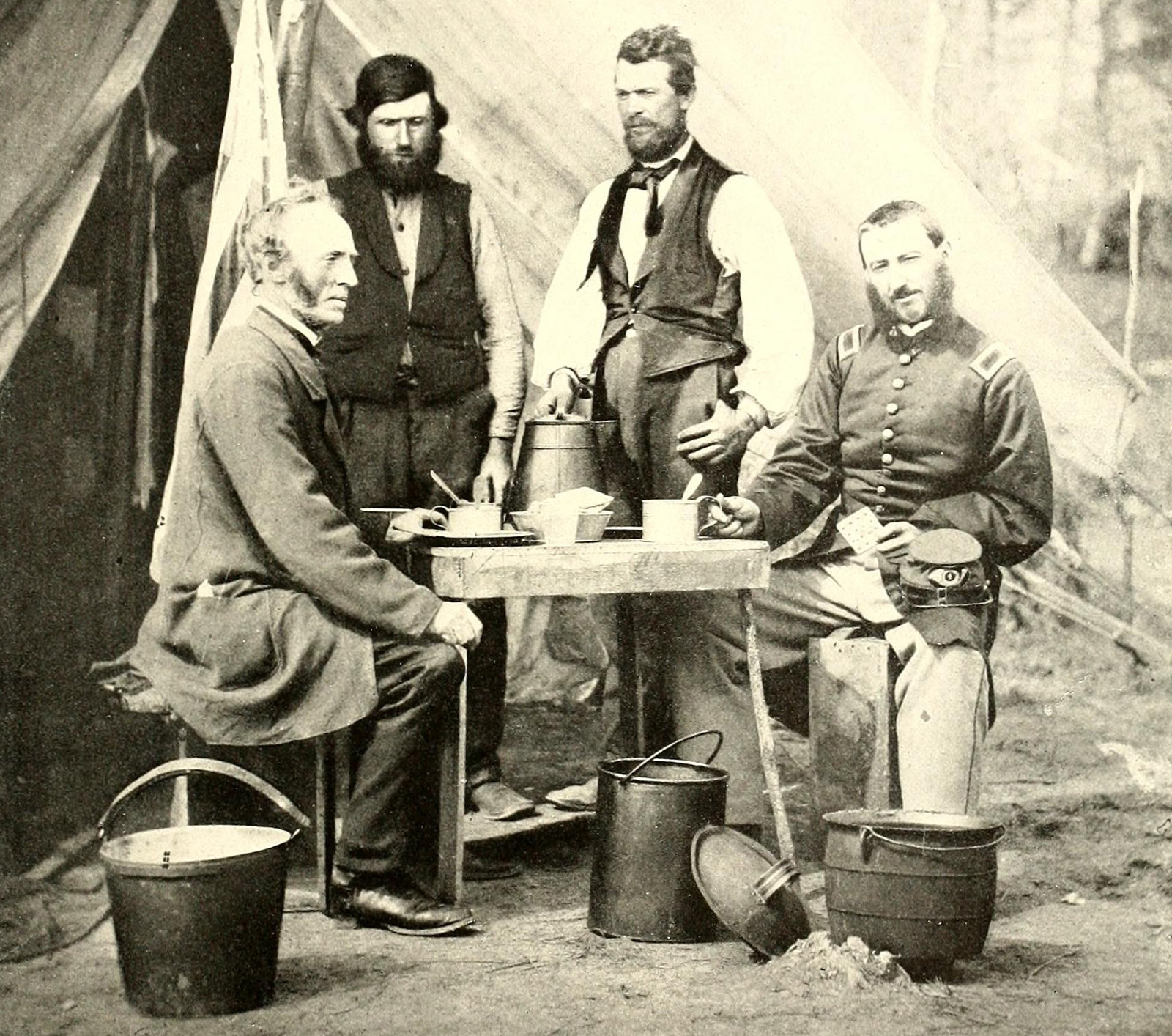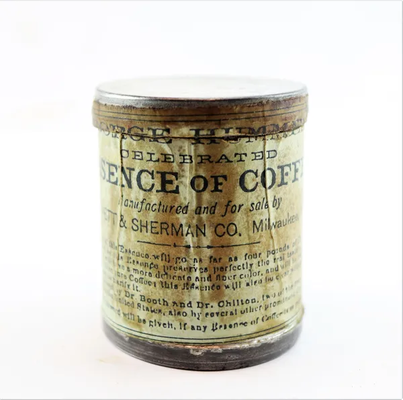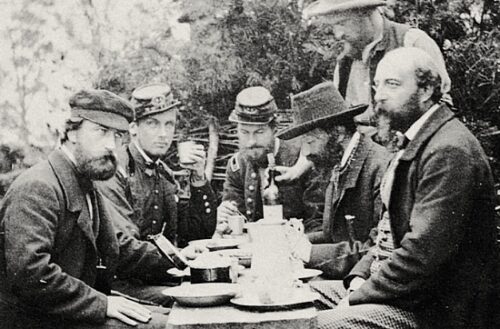In the midst of the turbulent era of the American Civil War, soldiers on both sides found solace and sustenance in a humble yet essential beverage: coffee. The use of coffee among troops during this time became so deeply ingrained in military culture that it earned the moniker “the army’s lifeline.” Coffee played a pivotal role in the daily lives of Civil War soldiers for several reasons. Firstly, it provided a welcome respite from the hardships and challenges of military life. Soldiers endured grueling marches, harsh weather conditions, and extended periods of time without proper meals. Coffee offered a comforting and energizing escape from these difficulties, boosting morale and providing a sense of normalcy amidst chaos. Soldiers often carried small bags of green coffee beans, which they roasted and ground themselves. The aroma of freshly brewed coffee wafting through camp became a familiar and comforting scent, serving as a reminder of home.
Additionally, coffee was highly valued for its stimulant properties. The caffeine content in coffee provided soldiers with a much-needed boost of energy, helping them stay alert and focused during long hours of duty and through the monotony of camp life. In an era without modern energy drinks or supplements, coffee was a reliable source of endurance for the troops. Practicality also played a role in coffee’s popularity among soldiers. It was relatively easy to transport and store, and its preparation required minimal equipment. Once the coffee beans were roasted, soldiers would grind them using various methods available at the time. They might use handheld grinders, mortar and pestle, or even improvised tools such as rocks or rifle butts. The grinding process was crucial in achieving the desired consistency for brewing.
Coffee-making during the Civil War required resourcefulness and ingenuity, as soldiers had to adapt to their challenging circumstances. The brewing process often took place in camp settings, where soldiers utilized rudimentary equipment and improvised techniques to prepare their cherished cup of coffee. One of the most common methods involved the use of a simple metal coffee pot, typically made of tin or enamel. Soldiers would fill the pot with water and place it over an open fire or a camp stove. As the water heated, they would add coarsely ground coffee directly into the boiling water. The coffee grounds, often purchased in bulk, were usually a dark roast to withstand the harsh brewing conditions and produce a strong, robust flavor.
Once the coffee grounds were added, the mixture would be allowed to boil for several minutes to extract the flavors. To settle the grounds and prevent them from being poured into cups, soldiers employed various ingenious techniques. These included tossing in a handful of cold water, adding a crushed eggshell, or even dropping in a few fresh grounds, which helped the settled particles sink to the bottom of the pot. After the brewing process, soldiers would let the coffee rest for a short period to allow the flavors to meld. To serve, they would carefully pour the coffee from the pot into cups or tin mugs, taking care not to disturb the sediment at the bottom. Given the limited resources available, soldiers often drank their coffee without milk or sugar, appreciating it for its invigorating properties rather than its taste.
Moreover, coffee served as a social catalyst, fostering camaraderie and camaraderie among soldiers. It provided an opportunity for troops to gather around campfires, share stories, and bond over a shared experience. In the face of the hardships and horrors of war, the act of enjoying a cup of coffee together offered a brief respite and a sense of unity among comrades. The significance of coffee during the Civil War extended beyond its immediate effects on soldiers’ morale. The Union Army recognized the importance of coffee to the troops and made concerted efforts to ensure its availability. The U.S. Sanitary Commission, a civilian-led organization dedicated to improving the welfare of soldiers, collected and distributed large quantities of coffee to the Union Army. This provision of coffee was seen as a vital contribution to the soldiers’ well-being.
The use of coffee by soldiers during the Civil War era was not limited to the Union Army alone. Confederate soldiers also relied on coffee as a source of comfort and sustenance, although they faced greater challenges in obtaining supplies due to the blockade imposed by the Union Navy. Consequently, Confederate soldiers often resorted to substitutes such as roasted acorns, chicory, or even ground peanuts to mimic the taste and aroma of coffee. The legacy of coffee in the Civil War era endures to this day, serving as a reminder of the importance of a simple pleasure in times of strife. The beverage’s ability to uplift spirits, enhance endurance, and foster camaraderie made it an indispensable part of soldiers’ lives during this tumultuous period.
*The views and opinions expressed on this website are solely those of the original authors and contributors. These views and opinions do not necessarily represent those of Spotter Up Magazine, the administrative staff, and/or any/all contributors to this site.



